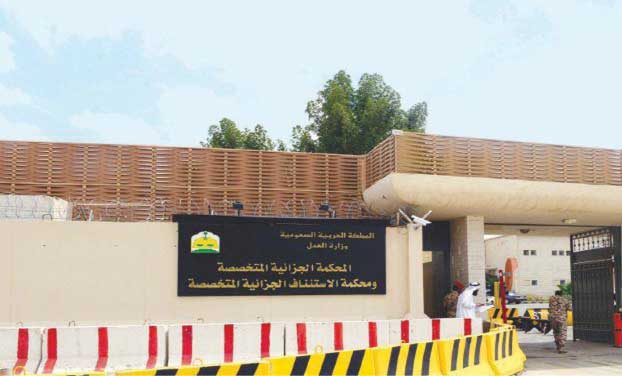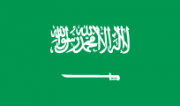
In 2016, we submitted to the UN Mechanisms 65 communications regarding 20 individuals.

SAUDI ARABIA
 Our Concerns
Our Concerns
- Absence of basic rights and freedoms and lack of legal safeguards;
- Systematic repression of human rights activists;
- Persistent practice of both arbitrary detention and torture, including against minors;
- Serious violations of the rights of the child.
 Recommendations
Recommendations
- Adopt a Criminal Code and apply juvenile criminal law for all persons under the age of 18;
- Ensure respect for the rights to the freedom of opinion and expression, and of association and peaceful assembly;
- Put an end to the practice of arbitrary detention and torture;
- Ensure independent investigation into all cases of torture and ill-treatment and guarantee the right to an effective remedy;
- Amend domestic law to ensure that it is in conformity with the State’s obligations under the Convention against Torture.
 Upcoming
Upcoming
- January 2017: Country visit of the Special Rapporteur on extreme poverty and human rights;
- 13 May 2017: Submission of Saudi Arabia’s follow-up report to the Committee against Torture.
As oil prices continued to plummet in 2016, the government had to think of ways to diversify its economy, finding alternatives to its heavy reliance on oil. In an effort to secure its prominent role in the region and beyond, it introduced “Vision 2030”, a plan to modernise the country by increasing non-oil revenues and raising private sector contributions in a bid to generate growth and jobs for its exceedingly young population. While some economists have called the vision “unrealistic” and merely another attempt by the Saudi authorities to appease its citizens. One thing that is clear, however, is that the envisioned change ignores the most important facet of human development; basic rights and freedoms.
On 2 January 2016, tensions with Iran reached a new high, when the Saudi authorities executed 47 individuals, the second largest mass execution in its history. Shia cleric, Sheikh Nimr Al Nimr, was among those executed. In protest, his followers took to the streets in the eastern province as well as in Iran, where the Saudi embassy was stormed and set on fire. This prompted the expulsion of Iranian diplomats from the Saudi Kingdom, as well as Saudi representatives from Iran, as a result of which all remaining diplomatic ties between the two countries were severed. Four of the 47 men executed in January were minors at the time of their offences, while others were mentally incapacitated. The vast majority of these victims was not afforded a fair trial. With a total of 154 executions in 2016, recourse to the death penalty in Saudi Arabia remains an issue of grave concern.
In March 2016, the new Law on Associations and Foundations officially entered into force. It is the first body of law of its kind to permit and regulate the establishment of civil society organisations (CSOs) in Saudi Arabia. The law comprises vaguely worded provisions to limit the registration of CSOs, including “violations of Islamic Sharia”, “contradictions to public morals”, and “breaches of national unity”. While CSOs can work in various fields upon authorisation by the Ministry of Labour and Social Development, including charitable or educational work, for example, the law precludes any mention of human rights or political activity. Further, the law prohibits foreign foundations and associations from establishing branches inside Saudi Arabia and subjects domestic CSOs to extensive government interference in internal affairs as they, for example, need to seek approval from the Ministry of Labour and Social Development to receive foreign funding.
Moreover, the intervention of the Saudi-led coalition in Yemen continued throughout 2016, while peace negotiations remained unsuccessful. According to the Office of the High Commissioner for Human Rights (OHCHR), since the bombing began in March 2015, there has been an average of 13 civilian casualties a day. A report issued by the OHCHR in August 2016 revealed that at least 2.8 million Yemenis, including more than 400,000 families, have been internally displaced, while over 80% of the population is in dire need of humanitarian assistance. Simultaneously, Saudi Arabia participated in strikes against Islamic State strongholds in both Syria and Iraq.
On 28 October, despite its worrisome human rights record, Saudi Arabia was re-elected to serve as a member of the Human Rights Council for a third three-year term.

The lack of fundamental legal safeguards
Governance in Saudi Arabia is based on the Sharia (Islamic law) as interpreted by the Council of Senior Scholars, the Kingdom’s highest religious body. Saudi Arabia only has a Basic Law of Governance, which fails to solidify fundamental rights and freedoms. Moreover, the Kingdom does not have a Criminal Code, but instead leaves legal interpretation of existing legal texts to the discretion of judges. This gives enormous leeway to the Bureau of Investigation and Prosecution and, in practice, to the Ministry of Interior, to retroactively qualify acts as crimes. Testimonies gathered by Alkarama have shown that this lack of legal certainty has repeatedly led to victims being charged with vaguely defined crimes, such as “questioning the integrity of officials” or “breaking allegiance to the King”.
Taking into consideration that the Saudi Code of Criminal Procedure contains no provisions to guarantee the right to challenge the lawfulness of detention, Alkarama continued to document cases in which detainees have been detained for months, if not years, before ever being brought before a judicial authority. One illustration of this phenomenon is the case of 32-year-old Salim Abdullah, who was arrested in December 2014, without an official arrest warrant or being informed about the charges held against him. He was subsequently detained incommunicado for six months and tortured in order to extract a confession. For the past two years he has neither been allowed access to a lawyer nor brought before a judicial authority. Sadly, a case like this is no isolated incident, but rather demonstrates a pattern of violations enabled by the absence of necessary legal safeguards.
In addition, most prisoners of conscience and political detainees are put on trial before the Specialised Criminal Court (SCC), which was established in 2008 to try cases relating to terrorism and State security. This jurisdiction systematically violates fair trial guarantees; its judges are directly nominated by the Ministry of Interior, hearings are often held in secret, and victims are denied access to their criminal files, as well as sometimes barred from attending their own hearings. Lawyers defending cases before the SCC have been barred from entering the courtroom and are often pressured to resign from cases, if they do not become the subject of prosecution themselves, as they are considered to be “disloyal to the State”.

Human rights violations against minors
It is of grave concern that Saudi authorities have continued to blatantly violate fundamental rights of children on numerous occasions. Minors face systematic violations of due process and fair trial rights, including arbitrary arrest. Moreover, they can be tried for capital crimes and sentenced as adults if there are “physical signs of puberty”, a determination that is left to the judges’ discretion. Such cruelty towards children is exemplified by the case of Murtaja Algariras, who, at age 13, was arrested by Saudi police in September 2014. During the investigation, he was tortured to extract false confessions with regard to his participation in “illegal gatherings”. More than two years after his arrest, Murtaja is yet to be charged and no date has been set for his trial.
On 7 October 2016, the UN Committee on the Rights of the Child published its Concluding Observations on the third and fourth periodic review of Saudi Arabia. The Committee expressed deep concern over the fact that in Saudi Arabia, children over 15 are tried as adults. As such, they continue to be sentenced to death and executed following “trials falling short of guarantees of due process and a fair trial”. The Committee recalled with concern that out of the 47 persons executed on 2 January 2016, at least four were under the age of 18 when sentenced to death by the SCC.
Moreover, the country’s human rights violations also extended to the neighbouring conflict in Yemen. According to the UN Secretary General’s annual report, published on 2 June 2016, Saudi Arabia belonged on the “list of shame” for killing and injuring over 1,000 children as a result of Saudi-led aerial attacks in Yemen, including dozens of airstrikes on schools and hospitals. Yet, four days later, following pressure from the Saudi authorities, the UN Secretary General decided to remove the Saudi-led Coalition from the “list of shame”, “pending the conclusions of [a] joint review” of the cases and numbers included in the assessment.

TORTURE, A PERSISTANT PRACTICE IN THE ABSENCE OF LEGAL PROTECTION
This year, Alkarama contributed to the review of Saudi Arabia by the Committee against Torture (CAT) in April with the submission of a list of issues and a shadow report. The review sought to evaluate the country’s compliance with the provisions enshrined in the Convention against Torture. As such, Alkarama’s contribution was based on the documentation of numerous cases of torture, as well as on an analysis of Saudi domestic legislation and the State’s second periodic report, which was submitted with a five-year delay.
In its Concluding Observations of May 2016, the Committee echoed Alkarama’s concerns and urged Saudi Arabia to carry out prompt, impartial, and effective investigations into allegations of torture and to prosecute perpetrators in accordance with the gravity of their acts. Moreover, emphasis was put on the need to integrate a definition of torture in its criminal legislation, guaranteeing its absolute prohibition and criminalisation.
Alkarama remains especially alarmed about the absence of legal safeguards from the onset of an arrest, which plays a central role in creating an environment conducive to torture. The recurrent denial of access to legal counsel, medical care, and the use of incommunicado detention increase the likelihood of torture. This was the case with Mounir Aal Adam, who was sentenced to death on 1 June 2016, after a severely flawed trial and the admission into evidence of confessions made under torture. Aged 19 at the time, Mounir was arrested without a warrant and was not informed of the charges against him. He was held in solitary confinement for a period of four months, during which he was deprived of food and sleep and was heavily beaten and electrocuted, forcing him to confess to his alleged participation in anti-government demonstrations. He was held in pre-trial detention for nearly three years and was denied access to a lawyer throughout his interrogation and for most of the trial hearings.
Given the severity of the situation and the fact that torture and other cruel, inhuman or degrading treatment or punishment remains a persistent practice in Saudi Arabia, Alkarama launched its monitoring programme for the implementation of the CAT recommendations, alongside national civil society. The programme will run for the next four years and Alkarama will submit follow-up reports to the experts of the Committee.